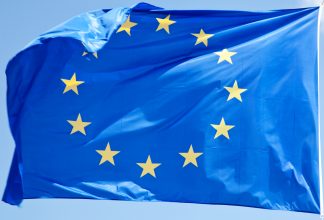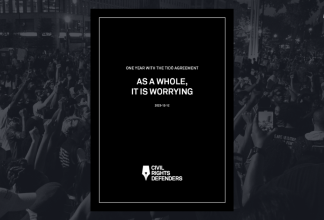The UN Reviews Swedish Signals Intelligence and Privacy

On the 9th and 10th of March the UN Human Rights Committee will review Sweden’s compliance with civil and political rights. The Committee has also requested reporting on Sweden’s safeguards to ensure that signals intelligence (SIGINT) operations under Act 2008:717, the so-called FRA Law, are consistent with the right to privacy.
In response to the Committee’s request, Civil Rights Defenders submitted a joint report with Privacy International and DFRI (the Association for Digital Rights and Freedoms) in February. Sweden has received repeated criticisms on its surveillance programs from the Human Rights Committee and other UN agencies. Unfortunately, very little progress has been made.
Despite revelations on suspicionless mass surveillance and intelligence system that arbitrarily collect and processes information from communication flows, Sweden has not provided sufficient assurances that the FRA’s collection and processing are precise, targeted, and consistent with the right to privacy.
The UN has on a recurring basis confirmed the obligation of states to treat all persons in accordance with human rights, regardless of citizenship and location. However, the Swedish intelligence system differentiates between the levels of protection for Swedish communications and non-Swedish communication data in a manner that adversely affects the rights of foreign citizens.
International disclosures have revealed that the FRA has developed its own software for computer network exploitation (hacking) program. It is one of the most intrusive means of intelligence collection that facilitates the extraction of saved files on a computer system, geo-location, and real-time monitoring through surreptitious logging of keystrokes and activation of audio and video recording functions. These operations are currently conducted without a clear and precise mandate codified in law.
Civil Rights Defenders recommends that Sweden takes all necessary measures to ensure that its surveillance activities conform to its obligations with respect to the right to privacy. We also recommend that Sweden reviews and reforms the FRA Law to ensure that any interference with the right to privacy is authorized by laws that are accessible, clear and precise. The intelligence cooperation with foreign powers must be reviewed to ensure compliance with the right to privacy even in such collaboration.
Sweden should publicly avow the surveillance technologies capacities, such as computer network exploitation to ensure that it is only deployed in the most compelling and narrowly defined circumstances, with the greatest oversight and safeguards. The current oversight system of surveillance activities should be reformed to ensure its effectiveness. Finally, we recommend that Sweden ensures that affected persons have access to effective remedies in cases of abuse.
Click here to read the report.


